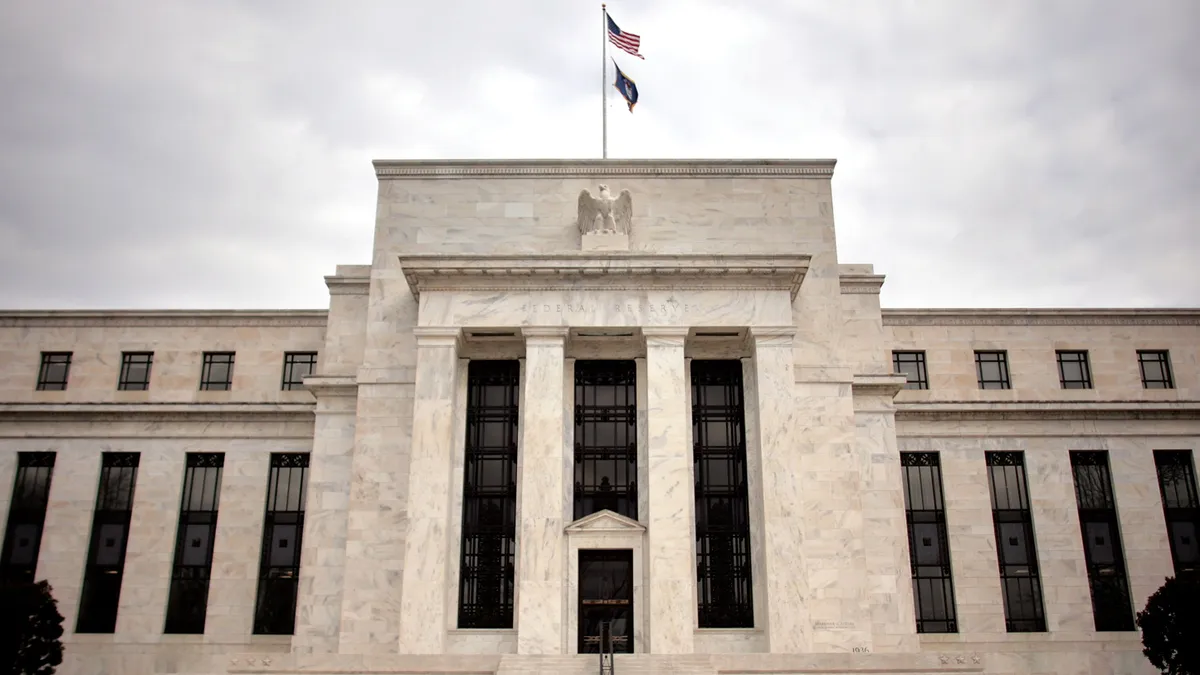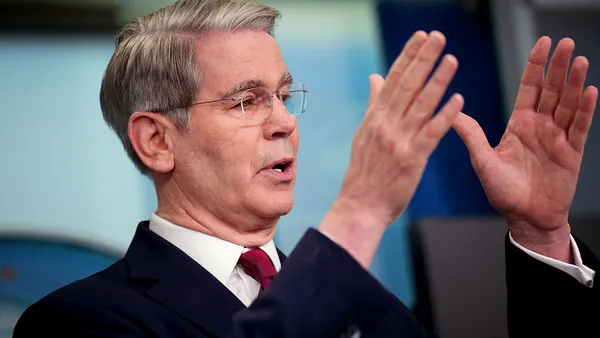Dive Brief:
- Federal Reserve Gov. Christopher Waller challenged some of the policy recommendations put forth in a report this month from the President's Working Group (PWG), which called on Congress to scale up regulations on stablecoin issuers.
- Waller delivered a speech Wednesday at a conference co-hosted by the Federal Reserve Bank of Cleveland and Office of Financial Research, and argued against limiting stablecoin issuance to banks, which Waller says would stifle innovation and competition in payments.
- The PWG report and Waller’s speech come at a time when the Federal Reserve has vowed to issue a paper meant to spur "broad conversation" on the prospect of issuing a central bank digital currency.
Dive Insight:
“While regulations are necessary, they also limit free entry into at least some of the markets in which banks operate,” Waller said Wednesday. “As a result, regulatory oversight can insulate banks from some forms of direct competition.”
Waller was nominated to serve on the Federal Reserve Board by then-President Donald Trump and was confirmed in December 2020.
In his speech, Waller concurred with the PWG that Congress must increase stablecoin oversight. Stablecoins are cryptocurrencies that attempt to peg their value to another asset, such as the U.S. dollar.
Recently, regulators have increased scrutiny over crypto companies offering interest-bearing accounts. In September, the SEC clamped down on a Coinbase product called Lend, which would have allowed customers to earn an annualized yield of 4% by lending stablecoin holdings.
“Stablecoins must bridge the biggest gap between them and commercial bank money: robust, consistent supervision and regulation and appropriate public backstops,” Waller said.
The lack of oversight in this area can lead to three risks, Waller said: a destabilizing run, a payment system failure and the risk of scale.
While Waller favors a narrow regulatory framework to curb such serious risks, he disagreed with the PWG over its proposed restrictions on stablecoin issuers.
He contradicted PWG’s proposal to limit stablecoin issuance to banks. Such regulation would force companies without bank charters, such as Tether and Circle, out of the game.
“I disagree with the notion that stablecoin issuance can or should only be conducted by banks, simply because of the nature of the liability,” Waller said.
“I understand the attraction of forcing a new product into an old, familiar structure. But that approach and mindset would eliminate a key benefit of a stablecoin arrangement — that it serves as a viable competitor to banking organizations in their role as payment providers."














